BOOK GROUP
Why A Book Group?
We are dedicated to equipping our members with excellent educational resources and opportunities that help them shape medicine and culture for the better.
Our Book Group is a key way for individuals to engage the literature on relevant topics that healthcare professionals need to be aware of, but might not have the time to read on their own. Coming together routinely and in a small group setting allows book group participants to learn from others and to share authentically so as to really get the most out of the book and each other. CPL warmly welcomes you to register for the next available book study below:
Bioethics for Nurses: A Christian Moral Vision
by Charlie Camosy and Alisha Mack
“With the combined wisdom of Alisha Mack, a professor of nursing with many years of clinical experience, and Charles Camosy, an award-winning bioethicist and theologian, Bioethics for Nurses advances a vision for a holistic Christian notion of health care with practical applications for everyday relevance on the job. Through a series of case studies in the second part of the book, Mack and Camosy explore the ethics of specific situations with far-reaching implications for nurses working in a range of fields. In the last part, the authors reflect on the future of nursing after COVID-19, making this an especially timely book for a pivotal moment in the history of the profession. Now, more than ever before, the wisdom of the ancient tradition of Christianity is needed to speak into the profound contemporary realities we are facing together as a culture.”
Past Book Groups
Losing Our Dignity: How Secularized Medicine is Undermining Fundamental Human Equality
By Charlie Camosy
From the Publisher: “There is perhaps no more important value than fundamental human equality. And yet, despite large percentages of people affirming the value, the resources available to explain and defend the basis for such equality are few and far between. In his newest book Charles Camosy provides a thoughtful defense of human dignity.
Telling personal stories like those of Jahi McMath, Terri Schiavo, and Alfie Evans, Camosy, a noted bioethicist and theologian, uses an engaging style to show how the influence of secularized medicine is undermining fundamental human equality in the broader culture. And in a disturbing final chapter, Camosy sounds the alarm about the next population to fall if we stay on our current trajectory: dozens of millions of human beings with dementia.
Heeding this alarm, Camosy argues, means doing two things. First, making urgent and genuine attempts to dialogue with a secularized culture which cannot see how it is undermining one of its most foundational values. Second, religious communities which hold the Imago Dei sacred must mobilize their existing institutions (and create new ones) to care for a new set of human beings our throwaway culture may deem non-persons.”
What It Means to Be Human: The Case for the Body in Public Bioethics
O. Carter Snead
From the publisher: The natural limits of the human body make us vulnerable and therefore dependent, throughout our lives, on others. Yet American law and policy disregard these stubborn facts, with statutes and judicial decisions that presume people to be autonomous, defined by their capacity to choose. As legal scholar O. Carter Snead points out, this individualistic ideology captures important truths about human freedom, but it also means that we have no obligations to each other unless we actively, voluntarily embrace them. Under such circumstances, the neediest must rely on charitable care. When it is not forthcoming, law and policy cannot adequately respond.
What It Means to Be Human makes the case for a new paradigm, one that better represents the gifts and challenges of being human. Inspired by the insights of Alasdair MacIntyre and Charles Taylor, Snead proposes a vision of human identity and flourishing that supports those who are profoundly vulnerable and dependent–children, the disabled, and the elderly. To show how such a vision would affect law and policy, he addresses three complex issues in bioethics: abortion, assisted reproductive technology, and end-of-life decisions. Avoiding typical dichotomies of conservative-versus-liberal and secular-versus-religious, Snead recasts debates over these issues and situates them within his framework of embodiment and dependence. He concludes that, if the law is built on premises that reflect the fully lived reality of life, it will provide support for the vulnerable, including the unborn, mothers, families, and those nearing the end of their lives. In this way, he argues, policy can ensure that people have the care they need in order to thrive.
In this provocative and consequential book, Snead rethinks how the law represents human experiences so that it might govern more wisely, justly, and humanely.
Follow US:

